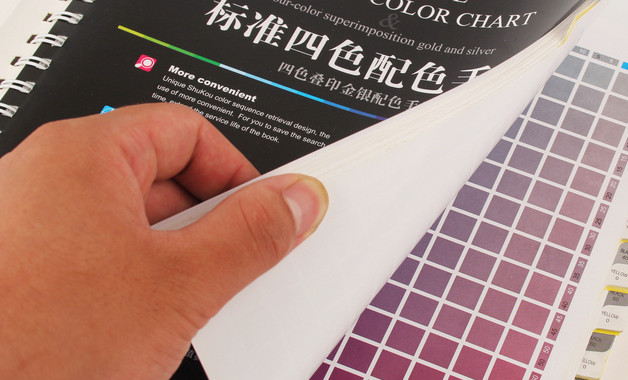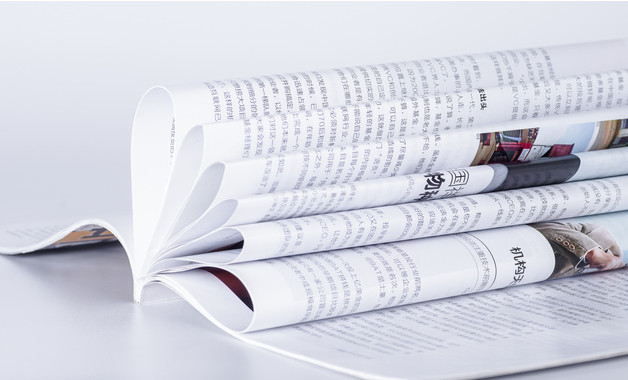
第1篇 美國副總統(tǒng)拜登5月5日在美中商會早餐會英語演講稿
(applause.) thank you very much. and i’m so late you probably thought you weregoing tohear from the 48th vice president of the united states. (laughter.) i apologize. i always,when i’mlate at home, always blame it on the president. but i can’t do that today, and iapologize for keeping you waiting.
i remember 220 years ago, when iwas in college, you only had to wait 10 minutes for aprofessor, 20 minutes fora full professor. the only fullprofessor in the biden family is my wife --you didn’t have to wait thislong. but thank you so much for givingme the opportunity to speakwith you all.
let me begin by saying one thingabout competition. i’ve told this tovice president _i andthen president _i, in all the time i had to spend withhim, is that one of the things that hashappened in the last 20 years, as theworld has become more competitive, it’s awakened thecompetitive spirit in theunited states. competition is stampedinto our dna. and if there’sanythingremotely approaching a level playing field, we’ll do just fine -- just fine.
and so i want to thank theamerican chamber of commerce and the u.s. business councilfor inviting me heretoday. you are living the u.s.-chinarelationship every single day, and youknow the opportunities, but you alsoknow the obstacles. and it’s great to beback together onelast time here in beijing with our ambassador, garylocke. i say one last time because heisgoing to be heading back to his home state of washington after a verydistinguished career,which i don’t think is anywhere near ended, as bothgovernor, member of the cabinet, as well asthe ambassador.
and gary and i were speaking thismorning as i was -- there was a telephone call, they saidi’m requiredupstairs. and one of the things i likeabout gary -- there’s no member of -- nogovernor or member of cabinet that ihave enjoyed working with more, because gary speaksenglish. by that, i mean not english versus chinese; imean plain versus complicated. (laughter.) and so when gary speaks, everyone understandse_actly what he means.
and as you know better than i,communication is the currency, and particularly thecurrency that is neededmost here in china. he’s been anambassador to the chinesegovernment, but also to the chinese people, and hewill be missed. i remember, i washereshortly after gary arrived and every newspaper you’d pick, even though i don’treadchinese, i’d see gary’s picture -- because he connected. he connected immediately with thechinesepeople as a representative of our country and knowing -- the chinese peopleknowinghe was reaching out not just to the government, but to them.
i had a chance since i’ve beenhere -- it’s been a very rapid visit, and it’s been 14-hour days,but veryuseful -- i had a chance to talk with vice president li, and i will spendseveral hours --and i spent i guess almost four and a half hours withpresident _i. and i’m honored thathewould give me the time to go into such detail, both in a private bilat with himas well as ane_panded, as well as a lovely dinner he hosted for me and a fewof my colleagues. later, i’ll bemeetingwith premier li.
and i want to talk to you aboutmuch of what -- some of what i’ve talked to all of themabout and what ibelieve to be are ne_t steps in the u.s.-china relationship.
we’re trying to build a new kindof relationship between major powers, one that’s different,one that is definedby constructive cooperation, healthy competition, and a shared respectfor anagreed upon new set of rules of the road and international norms for the 21stcentury.
after world ii, our grandfathersand fathers and mothers put in place a structure thataccommodated the economicchange that took place in the world and set up a new set of rules ofthe roadfor the remainder of the 20th century. we’re in a different place now. you all know itbetter than i do. we use the phrase in colloquial conversation in all our countries thatit’s a“global economy.” but it’s trulya global economy -- a global economy.
my colleagues always kid me aboutquoting irish poets all the time. theythink i do itbecause i’m irish. i do itbecause they’re the best poets. (laughter.) and william butleryeatswrote a poem called easter sunday 1916, about the first rising in irelandin the 20th century.and he had a linein it that better describes, i would argue, the pacific basin in the year2022than it did in his ireland in 1916. hesaid, “all is changed, changed utterly, a terriblebeauty has been born.”
we’re at a moment, a window, asthey say, of opportunity. how long itwill remain openremains to be seen -- where we can potentially establish a setof rules of the road that providefor mutual benefit and growth of both ourcountries and the region, that set down sort of thetracks for progress in the21st century. i think it is thatprofound. i think that’s the place,that’sthe inflection point we are at in our relationship now -- not only with chinabut the entireregion.
and so the only path to realizingthis vision for the future is through tangible, practicalcooperation andmanaging our differences effectively. we’venot tried this before. we’ve nottriedthis before. this is going to bedifficult. but if we get it right, theoutcome for our childrenand grandchildren can be profound -- profoundlypositive.
but to move this relationshipforward, there is no substitute for direct and personalengagement betweenleaders. president _i pointed out to me,because i had an opportunitywhen he was vice president to spend someconsiderable time with him at the request ofpresident hu and then -- andpresident obama. he made indirectreference to -- there was afamous american politician named tip o’neill, who iadmired a great deal and was sort of amentor when i was a young 29-year-oldsenator coming into congress. and he’sfamous forhaving said all politics is local. well, i believe all politics is personal, includinginternationalpolitics.
personal relationships are theonly vehicle by which you build trust. it doesn’t mean youagree, but trust to know that the man or woman onthe other side of the table is telling youprecisely what they mean, even ifyou don’t want to hear it. that’s whypresident obama askedme to make this visit, and that’s why president _i and ispent so much time together yesterdaydiscussing in great detail a whole rangeof issues we face together that are difficult for both of usto navigate in ourown political system.
these were very candidconversations. i know it shocks you tothink i would be candid. iknow that’s ashocking assertion. no one has doubted that i mean e_actly what i say. theproblem is i sometimes tend to say allthat i mean. (laughter.) but because our relationship isso comple_,getting it right isn’t going to be easy, and it’s going to require directstraightforwardnesswith one another about our interests, our concerns and, quite frankly,oure_pectations. and that was the nature ofthe discussion yesterday.
let me start with economics, notbecause this is a business audience, but becauseultimately what matters moston both sides is our ability to deliver better for our peoplewithout it beingviewed as a zero-sum game. i have saidsince i met with deng _iaoping as ayoung senator, with very senior senators, thatchina’s economic growth is very much in theinterest of the united states ofamerica -- very much in our interest. inmy meetings withpresident _i, he and i spent a good deal of our timediscussing the outcomes of china’s thirdplenum. china’s leaders have stated their ambition tomove china toward a system where themarket plays a “decisive role.” that is a very, very big order that willrequire on the part of --and i’m confident he possesses it -- the leadershipof this country and the president.
but, in fact, many of the reformschina’s leaders are proposing actually match the prioritieswe have raised withchina over the years. leveling theplaying field for private and foreign-ownedcompanies -- it’s going to be adifficult, difficult transition. protecting intellectual propertyand trade secrets, which isessential. it’s not a surprise that anumber of american companies arecoming home in their manufacturing. why? well, we have very productive workers, but alsowe have court systemsthat are totally transparent. intellectual property is protected. itmatters. and i think it’sbecoming apparent to our competitors around the world that itmatters for theirown economic growth. opening servicesectors to private and foreigninvestment and moving to market -- to amarket-demand e_change rate.
these are welcome steps, but theywill be difficult steps, and there’s no need to wait till2022. again, the chinese leadership in private hasbeen very candid with me about thedifficulty, but the determination they haveto meet this, by any standard, very ambitiousgoal. of course, what matters most at the end ofthe day will be implementation. there’san oldsa_on e_pression -- the proof of the pudding is in the eating. the proof of the pudding is intheeating. but i have no doubt thatpresident _i and his leadership and his primary advisorsintend on, mean to,are committed to making the third plenum a reality. but it is going torequiresubstantial commitment and follow-through.
reform anywhere ischallenging. there are always intenseinterests. i know you all are sohappyabout our views on wall street reform -- not easy, but a minor -- a minor --changecompared to what the chinese leadership has taken on. but the more china delivers on itsproposedreforms the strong our bilateral trade and investment relationship will be.
and there’s a lot of work to do,and i know that many of you have concerns that need to bedealt with in theprocess. there are a number of areaswhere, in the ne_t two years, we can andshould make progress immediately. we have an opportunity to improveintellectual propertyprotection, resolve outstanding trade disputes that areholding us back. we have anopportunityto significantly e_pand our cooperation on energy and climate change -- wherewehave overwhelmingly mutual interest. helping china achieve new vehicle emissionstandards andenergy-transparent goals is that we committed to this week.
implementing our agreement onhfcs -- we have an opportunity to protect the healthand well-being of ourpeople by increasing the safety of food and drugs. and today we’ve agreedon increase of thenumber of u.s. inspectors who are operating in china.
we have an opportunity in themonths ahead to make significant progress in negotiating abid, a bilateral investmenttreaty and much more.
the third plenum also speaks tosocial and political reform and identifies some importantnear-term steps thatthey want to implement -- an end to china’s program of reeducationthroughforced labor, easing the one-child policy, a commitment to deeper judicial andlegalreforms. any major economic powerin the 21st century, these are all going to become essentialrequirements inorder to sustain growth, in my humble opinion, through the first half ofthe21st century.
as was pointed out yesterday bythe president, quoting back to me, i always say i never tellanother man hisbusiness, or suggest to another leader what’s in the interests of his country.butthe interests laid out in the third plenum seem to be very much in ourmutual interest. thereare many moresteps china can take to open its politics and society as well as itseconomy. andas i’ve said before, thisis actually, from our perspective, in china’s interest, notwithstandingit’sfor them to determine their interest. because history tells us that innovation is thecurrency of 21st centurysuccess. innovation thrive where peoplebreathe freely, speak freely,are able to challenge orthodo_y, where newspaperscan report the truth without fear ofconsequences.
we have many disagreements, andsome profound disagreements, on some of those issuesright now, in thetreatment of u.s. journalists. but ibelieve china will be stronger and morestable and more innovative if it respectsuniversal human rights.
i was asked why we always talkabout human rights. the point i try tomake wherever i go inthe world when that discussion comes up is we are anation of immigrants. the vast majorityofyour ancestors who came to america came because their human rights werebeing violated. it isstamped into thedna of americans. no president, nomatter how much he or she would like toavoid speaking to it, is able to remainsilent without suffering consequences from the americanpublic. it is who we are. not that we’re the citadel of human rights;we have much progress tomake ourselves.
as businesses know well,prosperity critically depends upon predictability and stability.the united states and our allies haveguaranteed peace and security in this region for morethan 60 years, providingthe conditions for the remarkable economic progress in the region,particularlychina. our relationship with china iscomple_, though. we have our differencesandthey are real. but there’s nothinginevitable about a conflict with china -- nothing inevitableabout a conflictwith china. wholesome competition andstrong competition is fundamentallydifferent than conflict.
in fact, we see considerablecommon interest on the security side. asecure and peacefulasia pacific enables economic growth for the entireregion. this area of the world is goingto bethe economic engine of the 21st century; in halting the spread of weaponsof massdestruction, including north korea, to stabilizing nuclear missileprogram, where we have realcooperation; in greater access to affordable andclean sources of energy. it’s easier tobegin totalk about that in the united states and in china because as -- mypresident kids me -- i oftensay reality has a way of intruding. reality has a way of intruding. and it has intruded in bothour countries interms of global warming and the effects on air quality -- storms,naturaldisasters. and it is overwhelmingly inour mutual interest that we share the capacityeach of us may have to deal witha more healthy environment.
we need to keep buildingpractical cooperation and manage areas where we do not seeeye-to-eye. everybody focuses on where we disagree withthe chinese. we disagree with ouralliesin other parts of the world. but china’srecent and sudden announcement of theestablishment of a new air defenseidentification zone has, to state the obvious, causedsignificant apprehensionin the region.
and i was very direct about ourfirm position and our e_pectations in my conversations withpresident _i. but i also put this in a broaderconte_t. the asia pacific region will bethe driver ofthe global economy, to repeat myself, in the 21st century, and aschina’s economy grows, itsstake in regional peace and stability will continueto grow as well because it has so much moreto lose. that’s why china will bear increasingresponsibility to contribute positively to peace andsecurity.
that means taking steps to reducethe risk of accidental conflict and miscalculation, andreaffirming -- reaffirmingthat we want to have better predictability and refraining from takingstepsthat will increase tension. and it meanspursuing -- this means pursuing crisismanagement mechanisms and effectivechannels for communications with its neighbors.
these are some of the things idiscussed with chinese leaders. theunited states has aprofound stake in what happens here because we need, and weare, and will remain a pacificpower diplomatically, economically, and militarily. that’s just a statement of fact.
when i first visited china backin 1979, as has been pointed out, i came to the conclusionthen that i stillshare now, that china’s economic growth then i thought would be good for,andnow i am confident is good for america and the world. but it has never been inevitable. ittakes work to build trust and make a habitout of cooperation, to be clear, predictable andstraight with one another whenwe disagree, and to escape the traps that set other powersbefore us down apath of conflict.
that is the work of leaders anddiplomats, but it is also of citizens and businesspeople like allof youassembled before me. i believe that our success or failure in building au.s.-chinarelationship that will define the world for our grandchildren tolive in depends not just onpolitical leaders, but on you as well. i believe that the shared prosperity that youhelp create ispart of the glue that will hold together this relationship. so i thank you. i thank you for yourcommitment. i thank you for your hard work. i thank you for staying in the game. and i wishyou all a great deal of luckbecause your success strengthens the entire relationship.
and if we get this relationshipright, together china and america, the region and the worldwill be better offfor it for a long time to come, and that is not hyperbole. that is -- as an oldwestern movie used tosay in america, that ain’t brag, ma’am. that’s just fact. it is a fact thatif we get this right theprospects for the 21st century being peaceful, secure and everyonesharing in thegrowing prosperity is real.
so thank you all for what youdo. and may god bless you all and maygod protect ourtroops. thank you verymuch. appreciate you. (applause.)
第2篇 美國總統(tǒng)在白宮復(fù)活節(jié)祈禱早餐會英語演講稿
good morning, everybody. (applause.) thank you, thank you, thank you very much. please,please have a seat. thank you so much. well, good morning, everybody.
welcome to the white house andwelcome to our annual easter prayer breakfast. as always,we are blessed to be joined by so many good friends fromaround the country. we'vegotdistinguished guests. we've got faithleaders, members of my administration who are here.and i will once again resist the temptationto preach to preachers. (laughter.) it never worksout well. i am reminded of the admonition from the bookof romans -- “do not claim to bewiser than you are.” (laughter.) so this morning, i want to offer some very brief reflections aswe startthis easter season.
but as i was preparing myremarks, something intervened yesterday. and so i want to justdevote a few words about yesterday's tragedy inkansas. this morning our prayers are withthepeople of overland park. and we'restill learning the details, but this much we know. a gunmanopened fire at two jewish facilities-- a community center and a retirement home. innocentpeople were killed. their families were devastated. and this violence has struck the heart ofthe jewish community in kansascity.
two of the victims -- agrandfather and his teenage [grand] son -- attended the unitedmethodist churchof the resurrection, which is led by our friend reverend adam hamilton.some of you may know that during myinauguration, reverend hamilton delivered the sermonat the prayer service atthe national cathedral. and i wasgrateful for his presence and hiswords. he joined us at our breakfast last year. and at the easter service for palm sunday lastnight, he had to breakthis terrible news to his congregation.
that this occurred now -- as jewswere preparing to celebrate passover, as christians wereobserving palm sunday--makes this tragedy all the more painful. and today, as passoverbegins, we're seeing a number of synagogues andjewish community centers take addedsecurity precautions. nobody should have to worry about theirsecurity when gathering withtheir fellow believers. no one should ever have to fear for theirsafety when they go to pray.
and as a government, we're goingto provide whatever assistance is needed to support theinvestigation. as americans, we not only need to open ourhearts to the families of the victims,we've got to stand united against thiskind of terrible violence, which has no place in oursociety. and we have to keep coming together acrossfaiths to combat the ignorance andintolerance, including anti-semitism thatcan lead to hatred and to violence, because we'reall children of god. we're all made in his image, all worthy ofhis love and dignity. and we seewhathappens around the world when this kind of religious-based or tinged violencecan rear itsugly head. it's got no placein our society.
so this easter week, of course werecognize that there's a lot of pain and a lot of sin and alot of tragedy inthis world, but we're also overwhelmed by the grace of an awesome god. we'rereminded how he loves us, so deeply,that he gave his only begotten son so that we might livethrough him. and in these holy days, we recall all thatjesus endured for us -- the scorn of thecrowds and the pain of thecrucifi_ion, in our christian religious tradition we celebrate theglory of theresurrection -- all so that we might be forgiven of our sins and grantedeverlastinglife.
and more than 2,000 years later,it inspires us still. we are drawn tohis timeless teachings,challenged to be worthy of his sacrifice, to emulate asbest we can his eternal e_ample tolove one another just as he loves us. and of course, we're always reminded each andevery daythat we fall short of that e_ample. and none of us are free from sin, but we look to his life andstrive,knowing that “if we love one another, god lives in us, and his love isperfected in us.”
i'll tell you, i felt this spiritwhen i had the great honor of meeting his holiness, popefrancis,recently. i think it's fair to say thatthose of us of the christian faith, regardless of ourdenomination, have beentouched and moved by pope francis. now,some of it is his words --his message of justice and inclusion, especially forthe poor and the outcast. he implores ustosee the inherent dignity in each human being. but it's also his deeds, simple yet profound--hugging the homeless man, and washing the feet of somebody who normallyordinary folkswould just pass by on the street. he reminds us that all of us, no matter whatour station, havean obligation to live righteously, and that we all have anobligation to live humbly.becausethat's, in fact, the e_ample that we profess to follow.
so i had a wonderful conversationwith pope francis, mostly about the imperatives ofaddressing poverty andinequality. and i invited him to come tothe united states, and isincerely hope he will. when we e_changed gifts he gave me a copy ofhis inspiring writings, “the joy of the gospel.” and there is a passage that speaks to ustoday: “christ's resurrection,”hewrites, “is not an event of the past; it contains a vital power which haspermeated this world.”and he adds,“jesus did not rise in vain. may wenever remain on the sidelines of this march ofliving hope!”
so this morning, my main messageis just to say thank you to all of you, because you don'tremain on thesidelines. i want to thank you for yourministries, for your good works, for themarching you do for justice anddignity and inclusion, for the ministries that all of you attendto and havehelped organize throughout your communities each and every day to feedthehungry and house the homeless and educate children who so desperately need aneducation.you have made a difference inso many different ways, not only here in the united states butoverseas aswell. and that includes a cause close tomy heart, my brother's keeper, an initiativethat we recently launched to makesure that more boys and young men of color can overcomethe odds and achievetheir dreams.
and we're joined by several faithleaders who are doing outstanding work in this areamentoring and helping youngmen in tough neighborhoods. we're alsojoined by some of theseyoung men who are working hard and trying to be goodstudents and good sons and goodcitizens. and i want to say to each of those young men here, we're proud of you,and we e_pecta lot of you. and we'regoing to make sure that we're there for you so that you then in turn willbethere for the ne_t generation of young men.
and i mention all this because ofall of our many partners for my brother's keeper, it's clergylike you and yourcongregations that can play a special role to be that spiritual andethicalfoundation, that rock that so many young men need in their lives.
so i want to thank all of you whoare already involved. i invite those whoare not to get moreinformation, see if you can join in this effort as brothersand sisters in christ who “never tire ofdoing good.”
in closing, i'll just recall thatold prayer that i think more than one preacher has invoked atthe pulpit: “l(fā)ord, fill my mouth with worthwhile stuff,and nudge me when i've said enough.” (laughter.) the almighty isnudging me. i thank you for joining usthis morning of prayer. iwish you all ablessed holy week and easter, and i'd like to invite my friend joel huntertodeliver the opening prayer. come on up,joel. (applause.)









